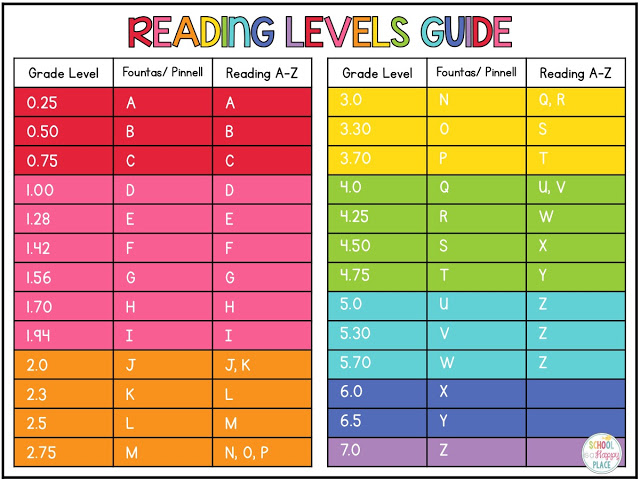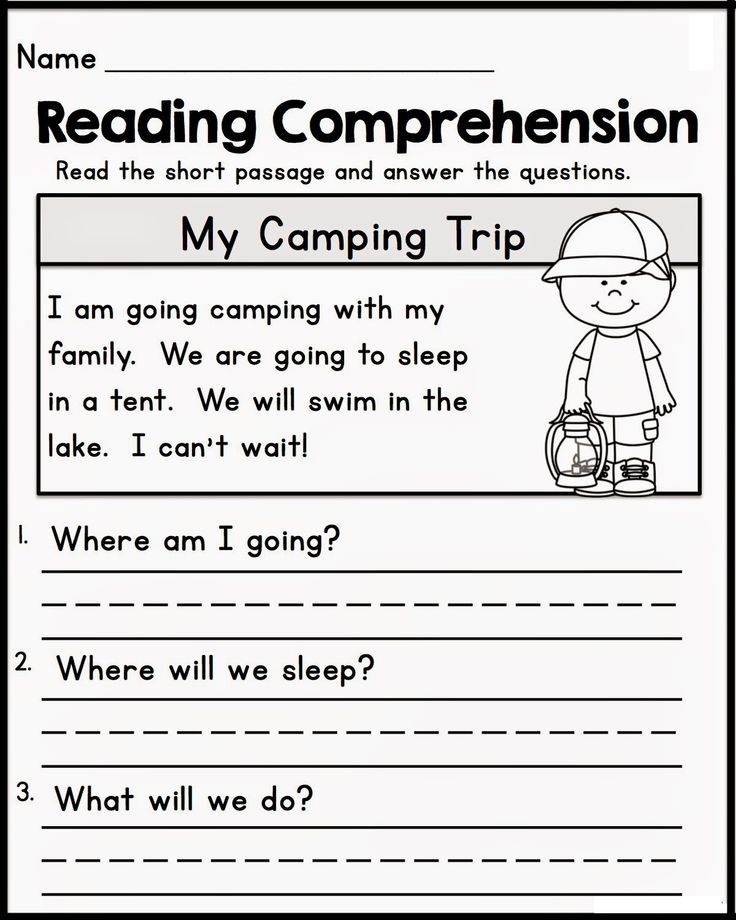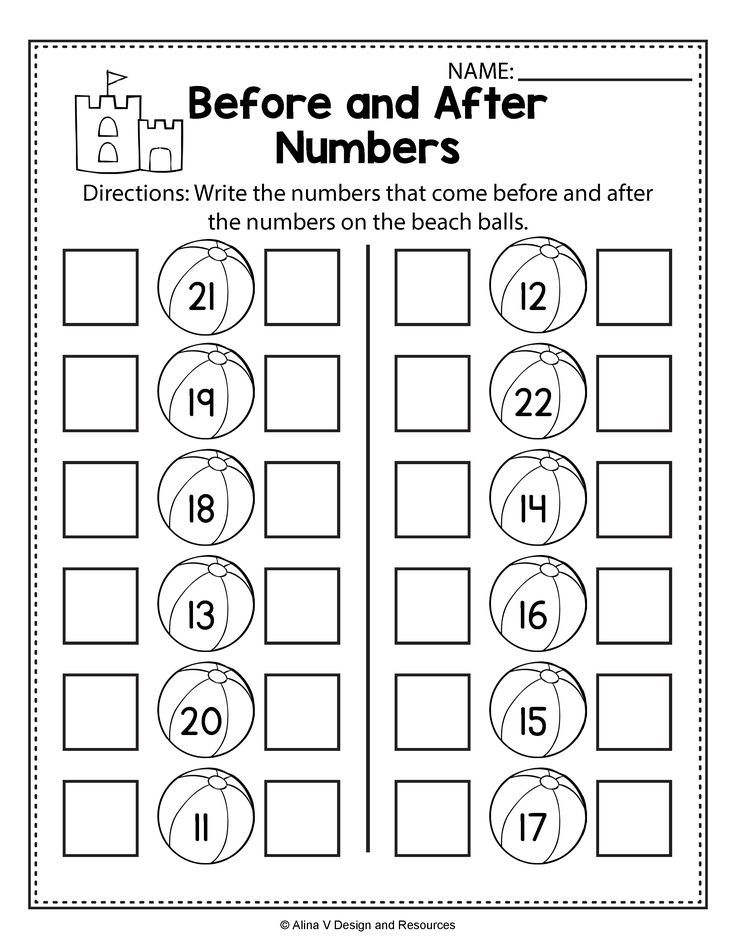Child social skill
Why Social Skills are Important for Child Development
Forming social skills is an integral part of child development. Social skills help children interact with the world around them through relationship development, verbal communication, and body language.
The right set of social skills will make it easier for a child to make friends, share with their classmates, and cooperate in social environments. Well-developed social skills also lead to improved cognitive abilities and better mental health.
There are many ways to encourage a child's social skill development. It is important to teach these skills early in life, as these will be the building blocks for social interactions and success in adulthood.
Keep reading to learn why social skills are important for child development and how to teach these skills.
Why Are Social Skills Important?
When it comes to childhood development, there are certain milestones that dictate growth and advancement. Social skills development is valuable to many areas of a child's life.
Studies show that a lack of social skills can lead to poor outcomes in child development. It can hinder their ability to create relationships, affect their adjustment at school, lead to loneliness, and cause behavioral problems in the future. This is why it is important to instill social skills in children early on in life.
There are several different social skills that are indicative of child development. These include sharing, cooperating, following directions, using eye contact, use of manners, and understanding personal space. These are useful skills that will allow children to be successful in the social world.
Children with higher social development can form stronger friendships and are more likely to succeed in their education. Research shows that children with better social competence also benefit in the following areas:
- Twice as likely to attend post-secondary education
- More likely to earn a high school diploma
- Less likely to use illegal substances
- Less likely to get into trouble with the law
These are just a few of the ways that a child can benefit from social competence.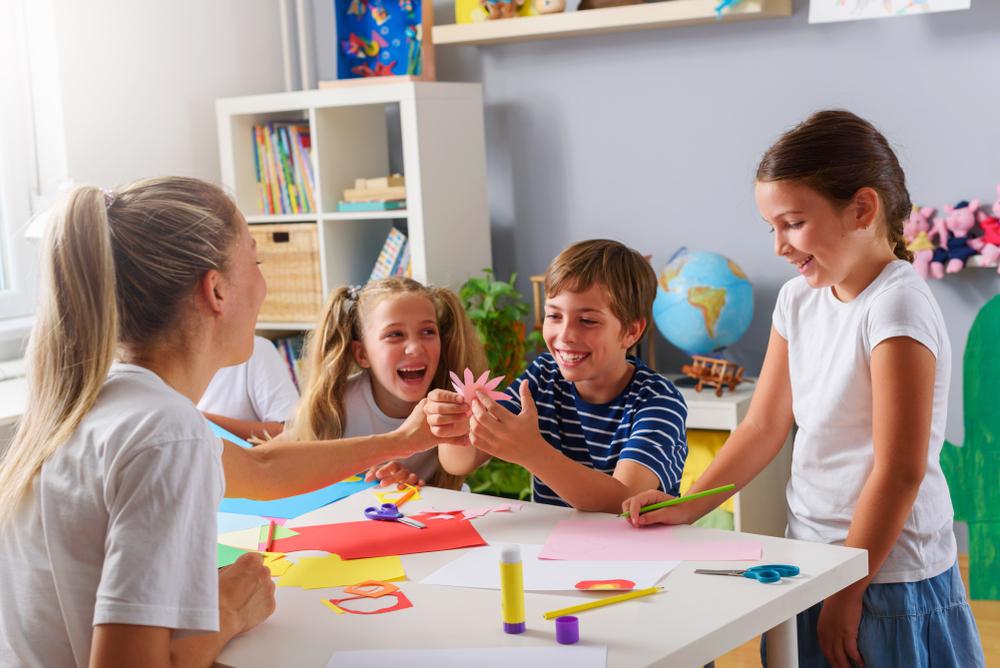 There are special programs to help enhance social skills and build a strong foundation for success in the future.
There are special programs to help enhance social skills and build a strong foundation for success in the future.
Social Skills in Early Child Development
At different stages of development, children exhibit different social cues. For each age, there are different child development skills that most children can display. While development can vary depending on one individual child, there are certain milestones that are characteristic of each age.
Age Two to Three
At this age, children like to copy others, particularly older children and adults. They enjoy interacting with other kids and get excited when they meet other children. They also display behavior that goes against what they are told to do.
While the terrible twos can ignite some naughty behavior, closer to the age of three, children become a bit more independent. They can show a range of emotions, including empathy and affection for a friend.
At this age, they can also express frustration with changes in their daily routine.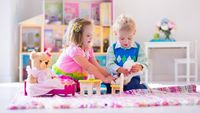
Age Three to Four
Around ages three to four, children enjoy doing new things. They become more creative with their play and like to role-play as mom and dad. However, they cannot understand the idea of make-believe.
A child at this age can cooperate with other kids. They can also talk about the things they like and don't like.
Age Four to Five
Children age four to five want to appease their friends and begin to copy their friends. They are more likely to follow the rules and show more independence. They can also become demanding in certain situations.
They are also aware of their gender at this age, and they like to sing and dance. They now understand the concept of make-believe.
Age Five to Six
Child development skills from age five to six include being about to follow daily routines, take turns, and understand directions.
Kids at this age can understand the idea of humor and they can also explain the cause and effect of their feelings. They are also cognizant of their behavior if it might disrupt others in a certain setting. They can speak clearly in most conversations and others can understand what they are saying.
They are also cognizant of their behavior if it might disrupt others in a certain setting. They can speak clearly in most conversations and others can understand what they are saying.
How to Encourage Children to Develop Social Skills
There are many ways that parents, caregivers, and educators can aid in child development skills. It is important for the adults in a child's life to be consistent in their teaching, so the child gets a clear understanding of what is expected in a social environment.
Being a Good Role Model
Modeling behavior is one of the most effective ways that you can teach your child social skills. During social interaction, use your manners by saying "please" and "thank you." Address others in a polite manner so that your child can see and copy your behavior.
Be sure to remind the child if they don't use polite language to reinforce good behavior.
Additionally, talk to the child about the importance of things like teamwork and cooperation.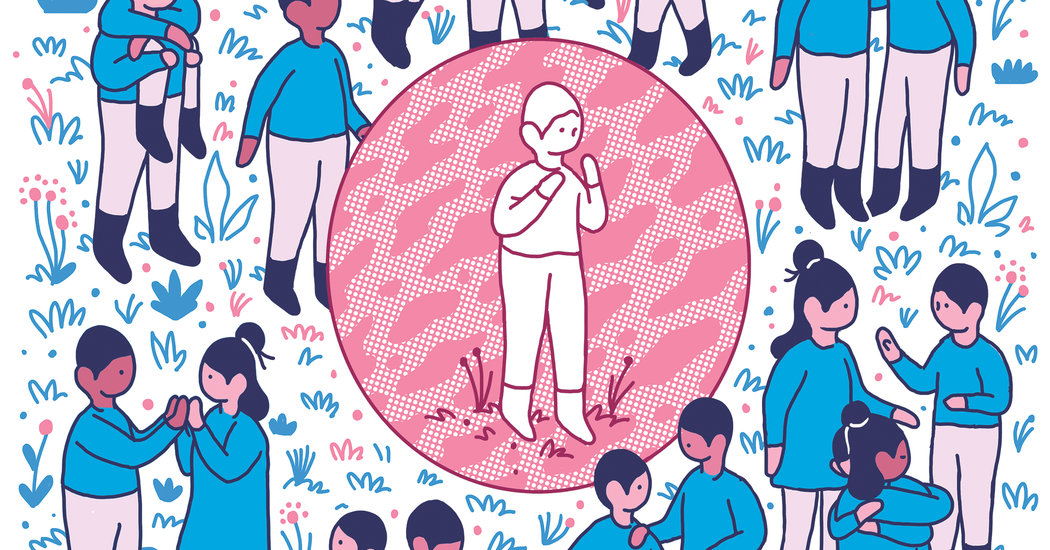 As you do something, talk to your child about why it's important. If everyone cleans up the toys, it's much easier, or helping a friend can make them happy.
As you do something, talk to your child about why it's important. If everyone cleans up the toys, it's much easier, or helping a friend can make them happy.
Role-Play With Your Children
Another effective way to encourage the development of social skills is by role-playing. Create opportunities where you can put those skills into practice.
You can role-play being at a restaurant and how to ask for something they'd like. You can use arms-length distance to teach a child about personal space and keeping their hands to themselves.
If you read a story, ask the child what they remember to ensure that they are developing listening skills. Practice eye contact when telling a story. You can talk about how they felt after you've gone through the scenario to make sure they understand why it's important.
Offer Praise and Positive Reinforcement
Positive reinforcement is a great way to keep a child encouraged to utilize social skills.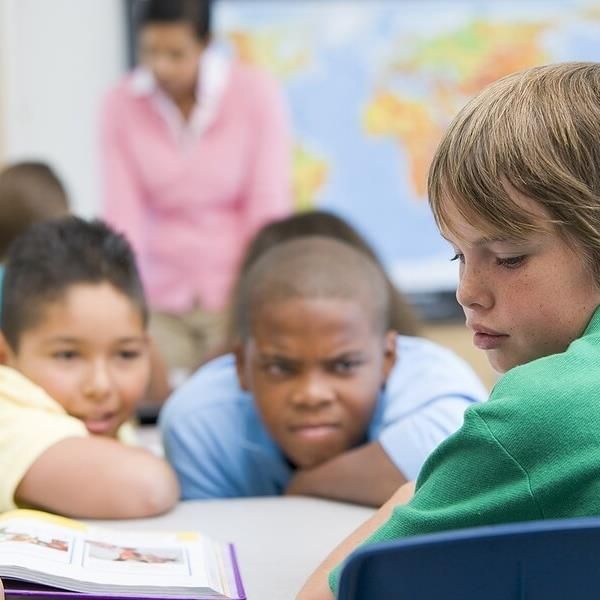 Be direct when giving praise by saying phrases like "Thank you for putting away your toys as I asked." These are clear and direct words of reinforcement that show they are following the rules.
Be direct when giving praise by saying phrases like "Thank you for putting away your toys as I asked." These are clear and direct words of reinforcement that show they are following the rules.
If a child has difficulty following directions, reinforce their listening and operating skills. You can do this by asking your child to do something and giving them immediate praise for having listened and followed the directions.
Keep practicing this until they become more cooperative.
Learning Through Playing
Children learn through listening to others, mimicking behavior, and language. But they also enjoy learning through play. There are a variety of ways that you can incorporate social skills learning through play.
A kindergarten or daycare setting is a great place for children to interact with other children and put some of their social skills to practice. Here they will face challenges where they need to solve problems, share, resolve conflict, take leadership, and show empathy to others.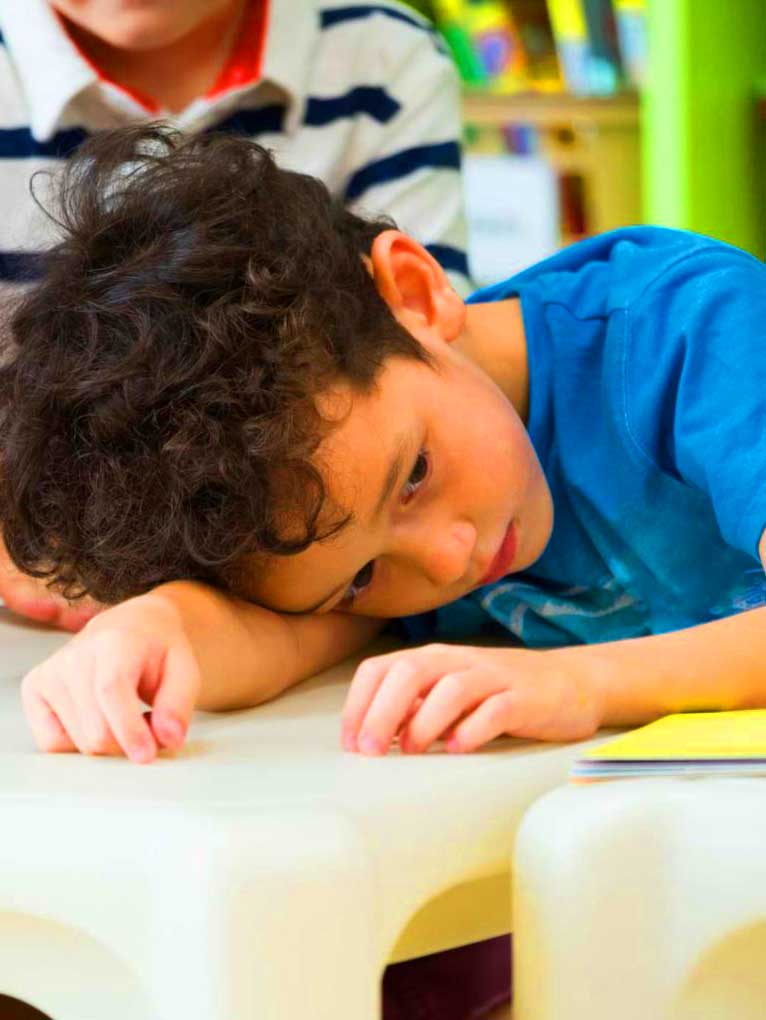
There are many ways that a child can grow and learn in this setting. It is especially helpful because it is outside of the home setting, allowing a child to interact with those outside of their immediate family. This puts them in a challenging new environment to utilize their skills and absorb skills from other kids.
Special programs can help fine-tune a child's social development in the right environment with support and encouragement.
Teaching Emotion Regulation and Understanding
An effective way to teach social skills is to help a child understand the role of emotions. This means helping them understand their own emotions as well as those of others.
You can use flashcards with faces that display a certain emotion. You can also ask the child to show you a face that represents a certain emotion.
Talk to the child to ask them to explain what the emotion means and how you can soothe it. For some children, emotion regulation can be difficult, and they will need guidance when they are having intense feelings.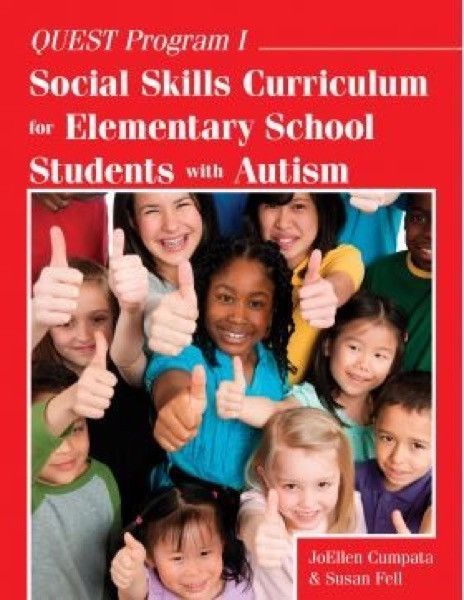
Additionally, being able to understand others' emotions will teach the child important social skills such as empathy.
Encouraging Social Skills for Child Development
While there are many skills that are important for your child to learn, social skills are vital for child development. When teaching a child social skill, remember to model the behavior, teach emotion regulation, offer positive reinforcement, role play, and learn through play.
With each age comes a different set of social skills to foster child development and help build a successful future for every child.
Be sure to visit our website for a variety of child development services and resources for teachers and caregivers.
8 Important Social Skills For Kids And How To Teach Them
Teaching social skills for kids is one of the most complex, confusing, but rewarding aspects of raising young children.
It’s no secret that preschoolers and kindergarteners are naturally egocentric. Even when playing or interacting with others, many children have difficulty sharing, empathizing, collaborating, and cooperating.
Even when playing or interacting with others, many children have difficulty sharing, empathizing, collaborating, and cooperating.
HOMER is here to help you learn eight of the most important social skills for kids, as well as how to incorporate them into your family life.
8 Important Social Skills For Kids
1) Sharing
Sharing is a part of daily life. That doesn’t mean it’s easy!
Sharing is a difficult concept for young children to get behind. Toddlers, preschoolers, and kindergarteners have a particularly difficult time, as they are more focused on their needs and desires than the needs and desires of others.
This is normal. The feeling that something “belongs” to them is typically much stronger than their desire to please others.
Even though it’s hard to share, doing so is critical to a child’s social skill development, as it helps them keep and advance friendships. It’s also a great way to bond and show appreciation.
2) Listening
Active listening is an important skill that even some adults struggle with. Properly deciphering and absorbing information requires significant focus.
Properly deciphering and absorbing information requires significant focus.
We all know this can be challenging for young kids, but active listening can strengthen their receptive language skills (the ability to comprehend spoken language).
Receptive language skills help your child:
- Handle social interactions
- Answer questions
- Understand stories
- Comprehend what they’re reading
- Understand gestures
While developing their social skills, your child will come to see how important it is to actively listen when others are speaking.
Paying attention to what someone is saying and responding directly to their statements or questions is a big part of healthy communication.
3) Following Directions
The cousin of good listening skills would be executing the instructions your child heard — a.k.a., following directions!
Following directions becomes particularly important once your child enters into their school years.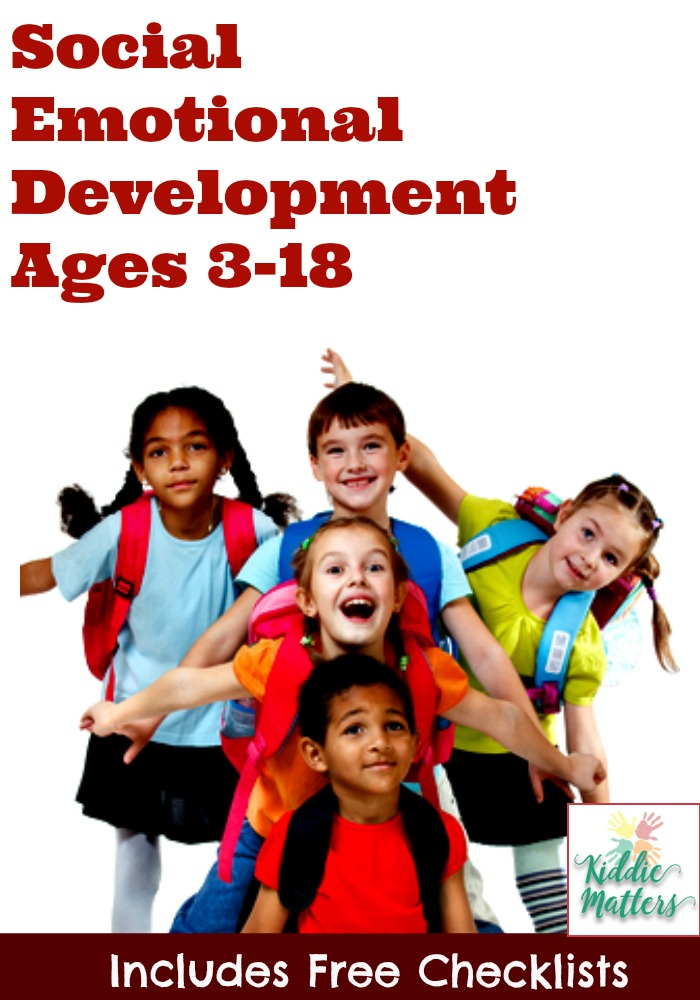
It’s one thing to follow directions at home with their parents where they’re innately comfortable; it’s another task entirely to follow directions from adult authority figures they may not know well.
Your child will learn how listening and following directions overlap with one another. If they listen well, it becomes easier for them to follow directions accurately. And when they follow directions accurately, they’ll often be rewarded for their hard work!
Keep in mind, however, that multi-step directions are challenging for young children. To help them develop the ability to follow directions, give them one direction at a time.
4) Collaborating And Cooperating
Similar to sharing, your child will learn how to move beyond sharing objects to sharing ideas, stories, and work.
With good collaboration and cooperation skills, children will learn that working in a group gives them a chance to express their ideas and listen to the ideas of others. It allows them to see that it can be fun to work on a shared project!
This may sound simple, but for young children, cooperation can often require real effort. It will take time for them to learn to respect others’ opinions even when they’re different.
It will take time for them to learn to respect others’ opinions even when they’re different.
By working together toward a common goal, kids can advance their sharing skills to include both intellectual and physical (think: cleaning the dinner table with a sibling) feats.
5) Patience
How many times have you heard the cliche, “Patience is a virtue”? Well, we are here to say it one more time!
It’s normal for young children to be impatient. However, patience really is one of the most rewarding social skills for kids.
Patience is critical for many things, including maintaining friendships and relationships and achieving big goals that can only be completed over an extended period of time.
This is where the concept of delayed gratification comes into play. When you help your child understand that good things often take time (not everything in life is microwaveable!), you nurture them into a patient person.
Learning patience takes practice and, you guessed it, patience! Trust that it will come with time (as everything does).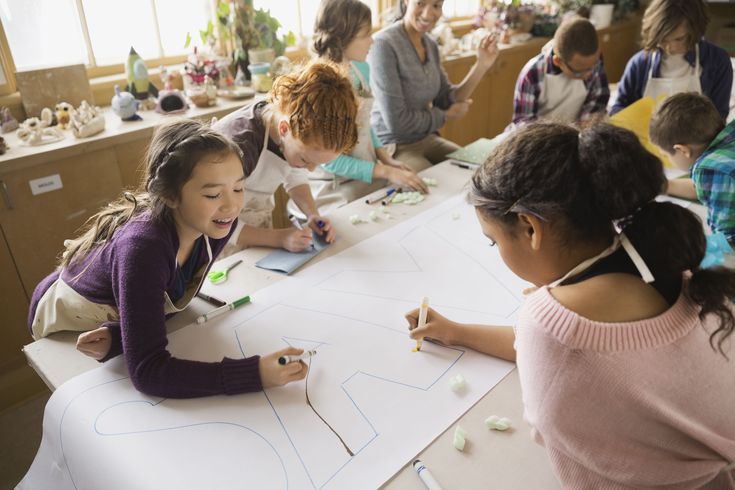
6) Empathy
When we say “empathy,” we’re referring to the traditional definition — the ability to understand and share the feelings of another.
Your child will learn how to appreciate the similarities and differences between their lives and those of people they meet. They will also learn how to empathize with these people, no matter how different they are.
For young children, this can mean small gestures.
For example, if their friend or sibling cries because your child is playing with a specific toy, your child may pause and say, “I know you want to play, too. Don’t be sad. We can take turns!”
But this sense of empathy will likely not appear overnight! Empathy develops over time and across a variety of scenarios.
The easiest way to promote your child’s development of empathy is by showing it in action. When you extend grace to your child often, they will learn how to extend it back.
7) Respecting Boundaries
Some people require different emotional and physical boundaries than your child.
This can be a particularly difficult concept to learn, especially for very young children who receive most of their socialization from within the household.
Likely, if your child is extroverted, they may assume everyone is OK with hugs, questions, or lots of chit-chat. In some cases, they may be right! In others, they may accidentally cross boundaries in their efforts to be friendly.
Teaching your child how to ask permission and identify boundaries helps them establish a sense of respect between themselves and others. The same goes for helping them establish boundaries for themselves.
Let your child know that it’s OK to say no to hugs, kisses, or other displays of affection from someone — no matter who it may be — if they feel uncomfortable. Model this idea by asking questions yourself (“Would you like a hug?”).
When they make their boundaries clear and ask for others to do the same, it will make both parties feel much more at-home.
8) Positivity
Working on positivity can make it exponentially easier for your child to tackle many of the other social skills for kids we’ve mentioned, especially patience, boundaries, listening, and sharing.
With a positive attitude, your child will find it easier to make and keep friends, succeed in school, and achieve their goals.
The easiest way to demonstrate positivity is by modeling it. The more positive you are about your child’s social skill development (including their inevitable slip-ups), the more reassured and positive they will become themselves.
This doesn’t mean you have to be positive all the time. In fact, a healthy amount of honest criticism can be beneficial in helping your child learn to express their feelings.
To do this, start with your own emotions. Let them know how you’re feeling and how you’re managing it in real time if you can. Kids need to know it’s OK to be sad, angry, or mad sometimes and how to handle it.
How To Teach Social Skills To Kids
Now that you know what social skills for kids to include, how do you go about teaching them at home? Let’s take a look!
Normalize Mistakes
Your child should know that you do not expect perfection.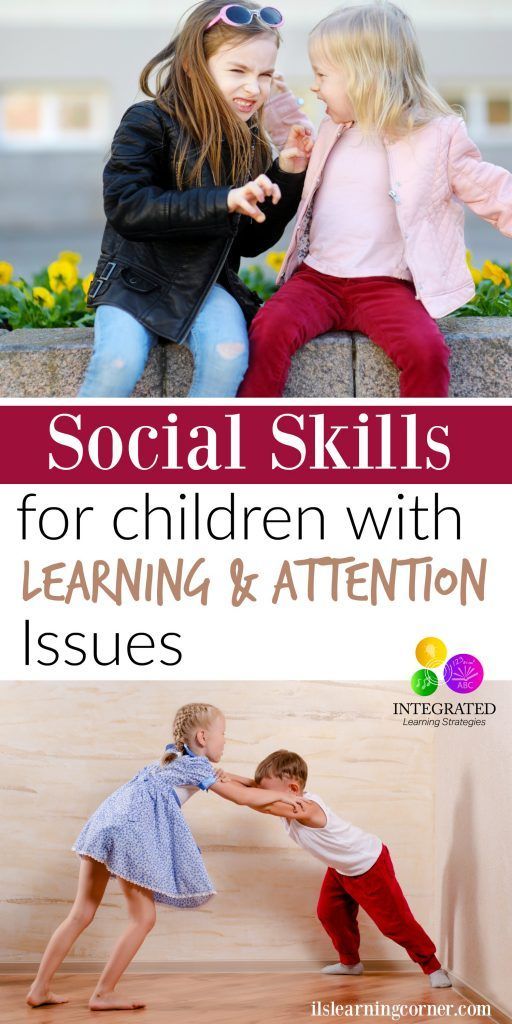 There is no way to execute all of these social skills every time, everywhere, without mistakes.
There is no way to execute all of these social skills every time, everywhere, without mistakes.
That is OK! In fact, it’s encouraged. Mistakes are normal; they’re how we learn what went right or wrong.
Make sure you normalize this for your child. If they know all humans learn lessons this way, it’ll be easier for them to push through the sting of a mistake and try again.
Encourage Sharing (Without Violating Boundaries!)
Although sharing is great and should be encouraged, there may be some things that are special to your child that they don’t want to share. This can be especially true of stuffed animals, blankets, or special toys.
This is OK, too! It’s great for your child to set boundaries that you and other children respect. To encourage sharing, try not to force it.
Encouraging without forcing also demonstrates to kids how boundaries can be created, acknowledged, and respected between people.
This will motivate them to share with those around them by taking comfort in the fact that what is special to them has been kept sacred and separate. It will also encourage them to be direct about their and others’ boundaries when it comes to play, school, or emotional issues.
It will also encourage them to be direct about their and others’ boundaries when it comes to play, school, or emotional issues.
Check Their Listening
During social interactions within your own family or outside of it, pay attention to your child’s listening skills. You can observe them to see if they are listening carefully.
Do they seem engaged? Are the asking questions?
And remember it is just as important to listen to your child. This shows them that what they are saying is important and encourages them to listen to you in return.
Think About How You Give Directions
In teaching social skills for kids, the parent or authority figure is responsible for ensuring the directions they give are something a young child can execute successfully.
When giving instructions, be clear, firm, and gentle. As we mentioned earlier, children have a very difficult time executing tasks with many directions at once. Start with one direction at a time that your child can focus on.
When giving instructions, have your child repeat what you want them to do. Only give an additional instruction when the first has been completed. Repeat until the task is complete.
Your child can give you directions, too! That way they have a sense of what it takes to delegate, manage, and execute a task from start to finish.
Give Empathy To Get Empathy
Show your child that you think about other people’s emotions, too! This is less of a teaching moment and more of an authentic display of empathy.
If you see that your child is expressing an emotion, validate it for them. “Oh, I see that you’re excited. I love that you’re so eager and happy to do this!”
You can acknowledge negative emotions, too. For example, you might say, “I know that must make you angry. Do you know how I can tell? What can we do together to make you feel less unhappy?”
This not only helps them feel seen and heard in the moment, but it also gives them a direct example of how to tackle empathy with others in similar situations.
Social Skills For Kids Are Essential
The more your child experiences the benefits of social skills, the more intuitive these skills will become for them. However, all children learn at different rates. With practice (and patience!), we know they’ll get there.
The Learn with Sesame Street app is an effective tool that helps kids learn and develop their social and emotional skills. With the help of their Sesame Street friends, kids learn how to express their emotions, empathize with others, and create healthy relationships. Explore the Learn with Sesame Street app today!
Author
Social skills of preschoolers - the development of social skills in children
The development of social skills is a necessary point of education. A child with a high degree of socialization will quickly get used to kindergarten, school, any new team; in the future will easily find a job. Social skills have a positive effect on interpersonal relationships - friendship, the ability to cooperate.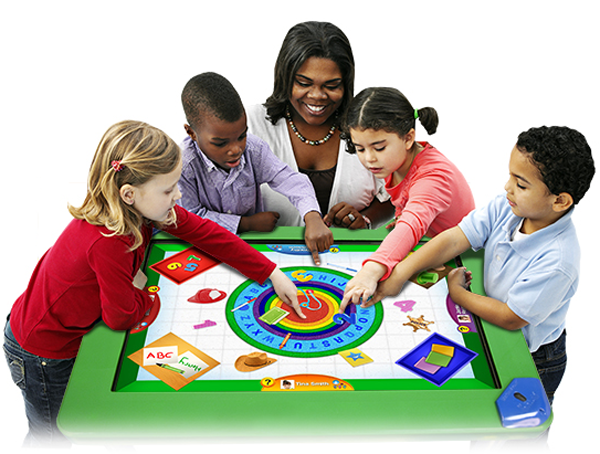
Let's figure out what social skills are.
What are social skills and why develop them?
Social skills - a group of skills, abilities that are formed during the interaction of a person with society and affect the quality of communication with people.
Man is a social being: all our talents and aspirations are realized thanks to other members of the group. Others evaluate our actions, approve or condemn our behavior. It is difficult to reach the pinnacle of self-actualization alone.
That is why social skills are important. They should be developed from early childhood and honed throughout life.
Social skills are a reflection of the child's emotional intelligence, to which educators and teachers assign an important role in the process of personality development. Without this group of skills, a smart child will not be able to apply the acquired knowledge in practice: it is not enough to create something outstanding, you need to be able to correctly convey thoughts to the public.
Sometimes people mistakenly believe that social skills relate exclusively to the topic of communication, communication. In fact, skills include many multidirectional aspects: an adequate perception of one's own individuality, the ability to empathize, work in a team, etc.
Why do we need social skills?
- Regulate the area of interpersonal relationships: the child easily makes new friends, finds like-minded people.
- Minimize psychological stress: children with developed social skills quickly adapt, do not feel sad due to changes in external circumstances.
- They form an adequate self-esteem from childhood, which positively affects life achievements and development in adulthood.
- Social skills cannot be separated from building a successful career: the best specialists must not only understand the profession, but also have high emotional intelligence.
Development of social skills in a child
Social skills need to be developed from preschool age, but older children and even teenagers may well learn to interact with the world.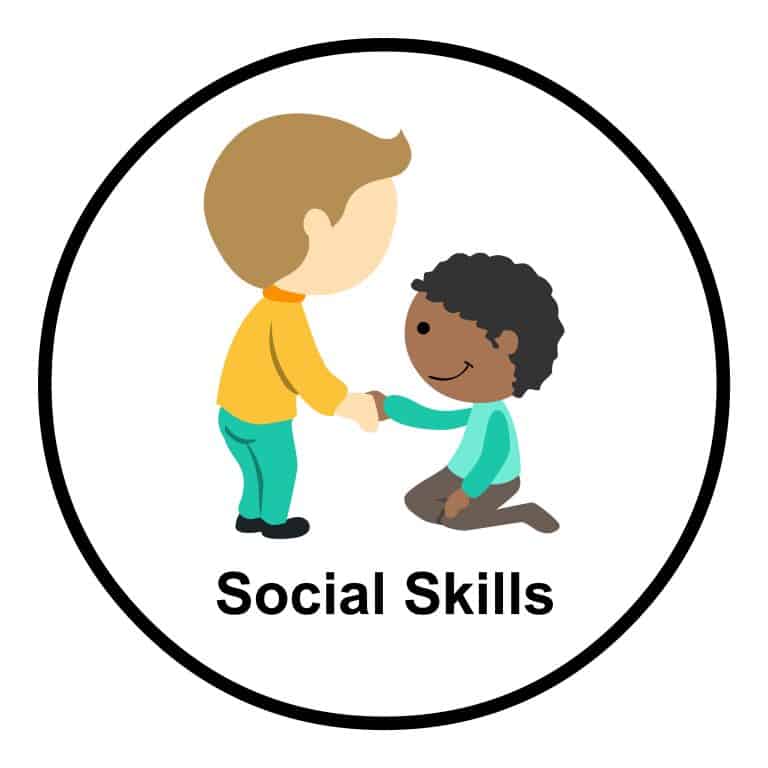
It is recommended to pay attention to areas of life that bring discomfort to the child, significantly complicate everyday life.
- Friends, interesting interlocutors: the kid does not know how to join the team, he prefers to sit in the corner while the others play.
- Verbal difficulties. The child does not understand the rules of conversation, is poorly versed in the formulas of etiquette (when you need to say hello, say goodbye, offer help).
- Problems with the non-verbal side of communication. Such a baby does not recognize the shades of emotions, it is difficult to understand how others relate to him. Cannot "read" faces and gestures.
- Does not know the measure in expressing a point of view: too passive or, conversely, aggressive.
- The child bullies classmates (participates in bullying) or is a victim.
In case of severe moral trauma, one should consult a psychologist: for example, school bullying is a complex problem that children are not able to cope with on their own.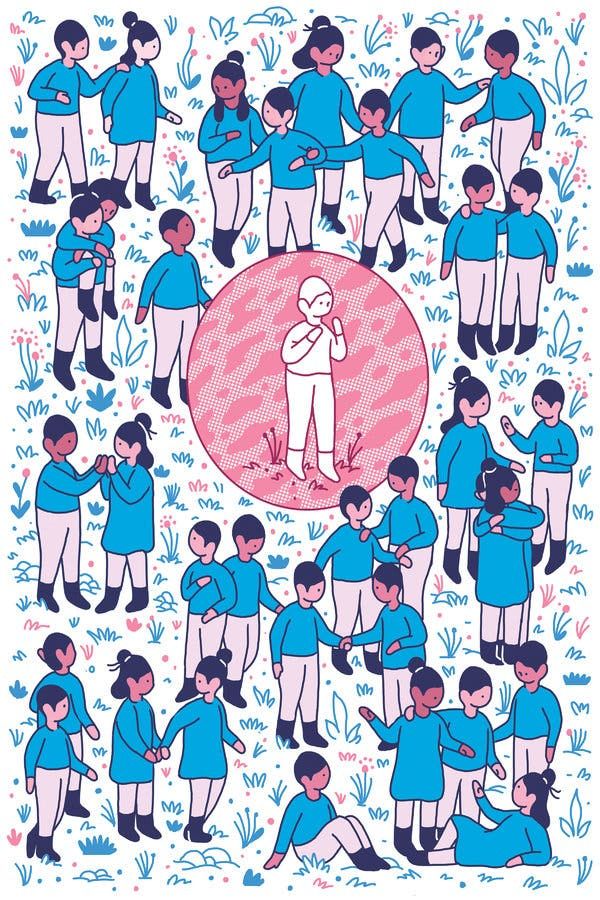 The involvement of parents and teachers is required.
The involvement of parents and teachers is required.
In other cases, family members may well be able to help the child develop social skills.
What are the general recommendations?
1. Be patient
Don't push your child to get the job done. Let them take the initiative: for example, do not rush to help during school gatherings, let the baby work on the problem on his own. The same goes for lessons and other activities.
2. Support undertakings
Children's dreams seem trifling to adults, but the initiative turns into a habit over the years and helps to discover new projects, meet people, and experiment.
3. Criticize the right way
When making negative comments, remember the golden rule of criticism: analyze the work, highlighting both positive and negative sides in a polite manner. Commenting on the specific actions of the child, and not his personality or appearance - this will lead to problems with self-esteem.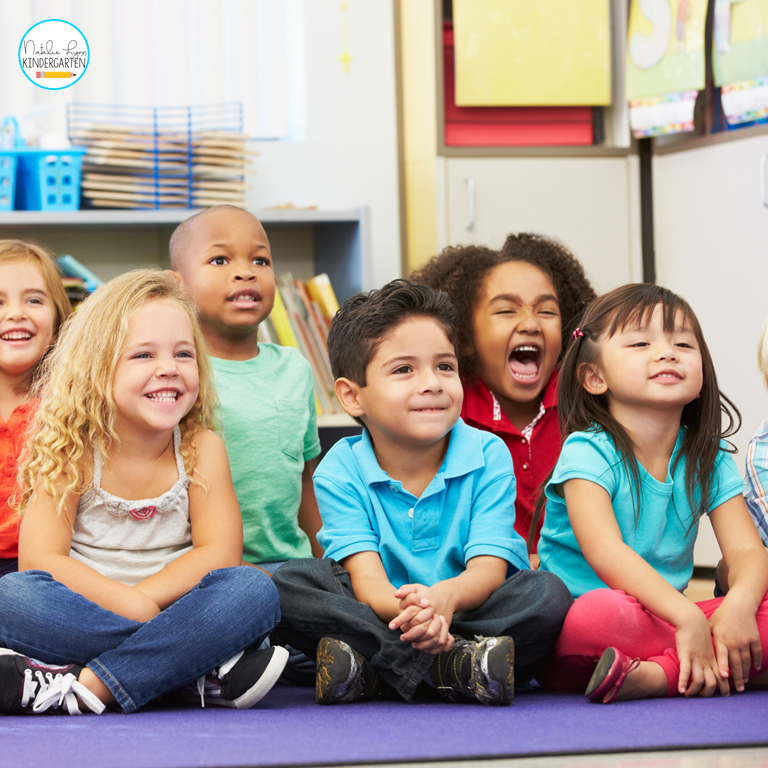
4. The right to choose
It is important for children to feel that their voice is taken into account and influences the course of events. Invite your child to personally choose clothes, books, cartoons. Ask about ideas, plans: “We are going to have a rest together at the weekend. What are your suggestions?
5. Personal space
Make sure that the baby has a place where he can be alone and take a break from talking. Personal things should not be touched: rearrange without prior discussion, read correspondence with friends, check pockets, etc.
Children, noticing the respectful attitude of adults, quickly begin to pay in the same coin; the atmosphere in the family becomes warm and trusting.
What social skills should be developed in a child?
Let's dwell on the main qualities and skills, the development of which is worth paying attention to.
1. The ability to ask, accept and provide help
Without the ability to ask for help, the child will deprive himself of valuable advice; the lack of the ability to accept help will lead to losses, and the inability to provide help will make the baby self-centered.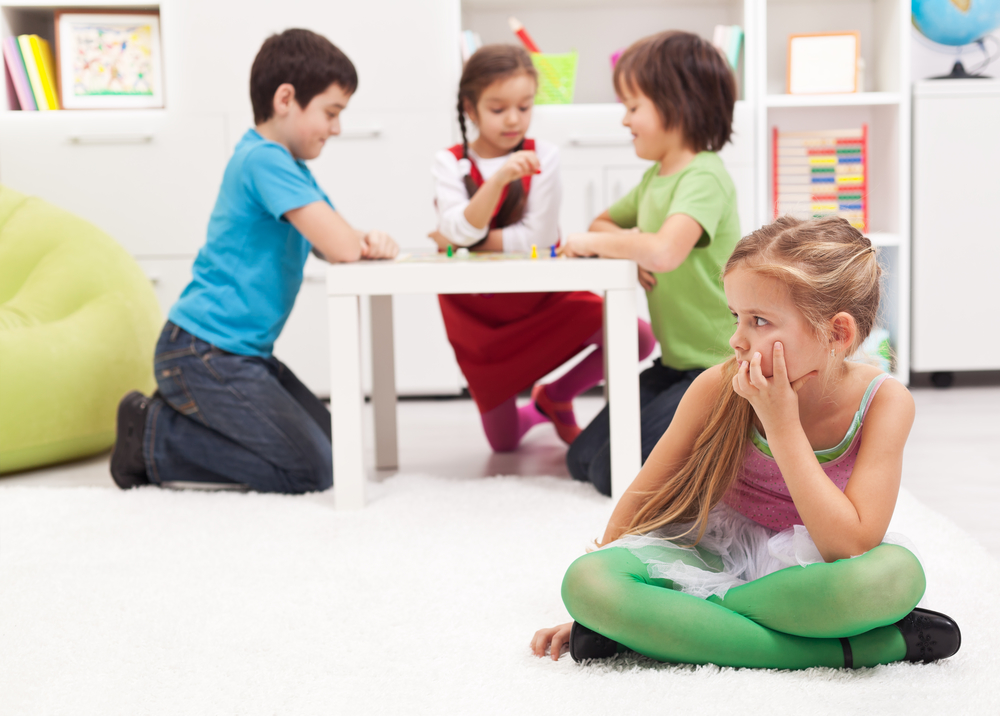
- Let the child help those in need: for example, a lagging classmate.
- Explain to your child that getting help from friends and teachers is not a shame.
- Show by personal example that mutual help enriches experience: tell how you exchange advice with colleagues, friends.
2. The ability to conduct a conversation and get the right information
Being a good conversationalist is difficult, but the skill is honed over time and brings a lot of benefits.
- Prompt your child for dialogue development options: for example, you can start a conversation with a relevant question, a request for help.
- Do not leave the child in the role of a silent listener: when discussing pressing issues at home, ask the opinion of the baby.
- Support children's public speaking: presentations at school, performances, funny stories surrounded by loved ones will add confidence.
3. Empathy
Empathy is the ability to recognize the emotions of others, put yourself in the place of another person, empathize.
This ability will make the child humane, prudent. How can it be developed?
- Start by recognizing the child's feelings - it is useless to listen to people if the person does not feel personal experiences. Ask your baby: “How do you feel after a quarrel with friends?”, “Do you want to relax today?”
- After conflicts with classmates, ask your child how the children with whom the quarrel may feel now.
- While watching cartoons, reading books, pay your child's attention to the emotional state of the characters.
4. Ability to work in a team
Many children can easily cope with tasks alone, but this is not a reason to refuse to work in a team. It gives the opportunity to exchange ideas and experience, delegate tasks, achieve goals faster and more efficiently.
- If the child does not communicate with members of the team, try to introduce him to another social group: for example, the lack of communication with classmates can be compensated by a circle of interests, where the child will feel calmer.
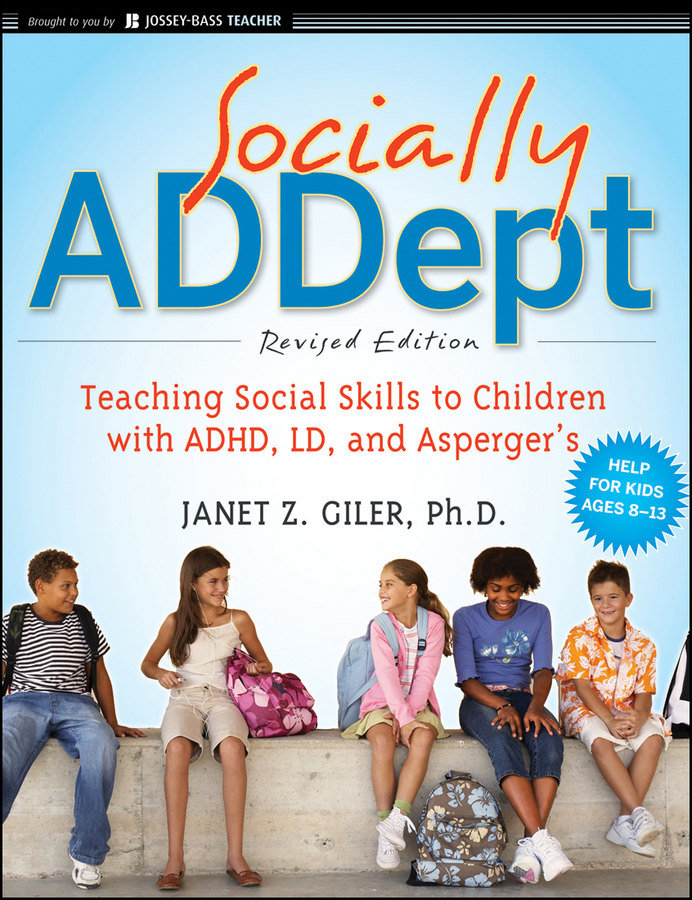
- Make the family a friendly team in which the child has his own "duties": for example, do housework, remind parents of upcoming events. Any activity related to the well-being of other family members will do.
5. Respect for personal boundaries
The absence of an obsessive desire to interfere in other people's lives is a valuable skill that helps to win people's sympathy.
- Respect the child's personal boundaries: do not enter the nursery unannounced, do not rummage through personal belongings and correspondence, if the matter does not concern the life and safety of the baby.
- If the child violates other people's boundaries (takes toys without permission, asks uncomfortable questions), talk about it in private.
6. Ability to overcome conflict situations
It is difficult to imagine our life without conflicts. The task of the child is to learn how to culturally enter into a discussion, defend his point of view, and not be led by the provocations of his interlocutors.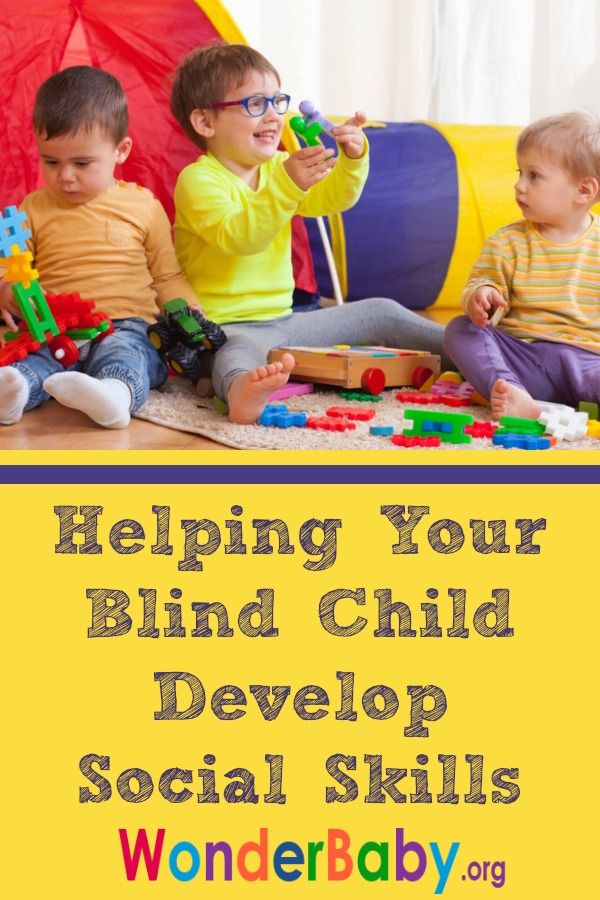
- Discuss problems that arise calmly, without raising your voice. Do not put pressure on the child with parental authority unnecessarily: the child is a separate person who has the right to an opinion.
- Do not judge people for views that differ from those of your family but do not affect your well-being. Show your child that the world is very different.
- You can demonstrate to children the basics of a civilized dispute, explain what arguments are, etc. It is advisable to teach this child in kindergarten.
7. Self-confidence
Stable and adequate self-esteem is a quality that not all adults possess.
It is formed under the influence of many factors: relationships between parents, the role of the child in the family circle, the characteristics of the environment that surrounded the child in early childhood.
It is important that the child does not grow up to be either a narcissistic narcissist with fragile self-esteem, or an overly shy person.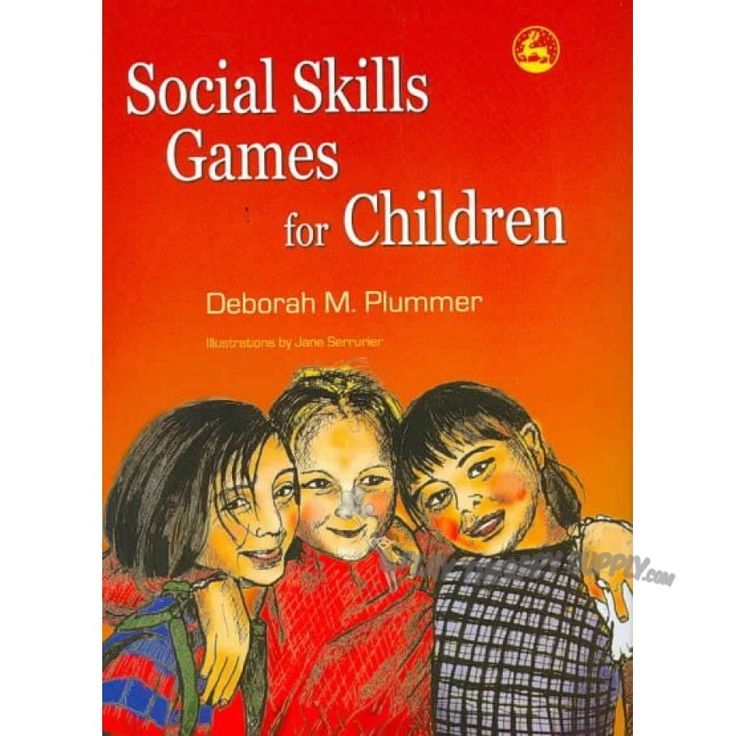 How can you help your child find balance?
How can you help your child find balance?
- Praise your child for personal progress: to receive a compliment from parents, it is not necessary to win prizes in school competitions. The zeal of the baby, the interest shown and the stamina also deserve praise.
- Explain, remind the children that initially they are worthy of respect and love, like all people around.
Social skills will help in many areas of life: in studies, hobbies, friendships, building a reputation in a team. The main thing is to encourage and support children at all stages.
Emotional intelligence for children
We introduce children to the types of emotions, how to manage them and how to show themselves in teamwork, through situational games
learn more
How to develop social intelligence in a child: 7 tips from a psychologist
Publishing house "Alpina Publisher" 123007, Moscow, st. 4th Magistralnaya, 5, building 1 +74951200704
4th Magistralnaya, 5, building 1 +74951200704
next article
December 13, 2017
2353 views
6 minutes to read
Success in life is often achieved by people from whom neither teachers nor parents expected it. “A bully, a slacker, a C student” suddenly turns out to be much more successful than his classmates, who spent all their childhood sitting at textbooks. The answer is not in "accidental luck" or "happy fate", but in social intelligence. Our social adaptation, the ability to understand people and, ultimately, success depend on how developed it is.
Social intelligence, unlike formal intelligence, can be developed. And it is better to start doing this from an early age. How exactly?
- Pay attention to who and how the child communicates. To begin with, we need to take the most objective position and look at the child's social circle. Where and with whom does he spend his free time? Does he have real (and not virtual) friends with whom he meets regularly, visits them? Does he have the opportunity to choose friends on his own? Or do we conduct a thorough audit of his acquaintances and, in an attempt to protect him from bad influence, we forbid him to communicate with "unequal", "bad" boys and girls? Does he know how to get out of difficult situations, resolve conflicts, or does he run to his parents for help?
- Expand the child's social circle.
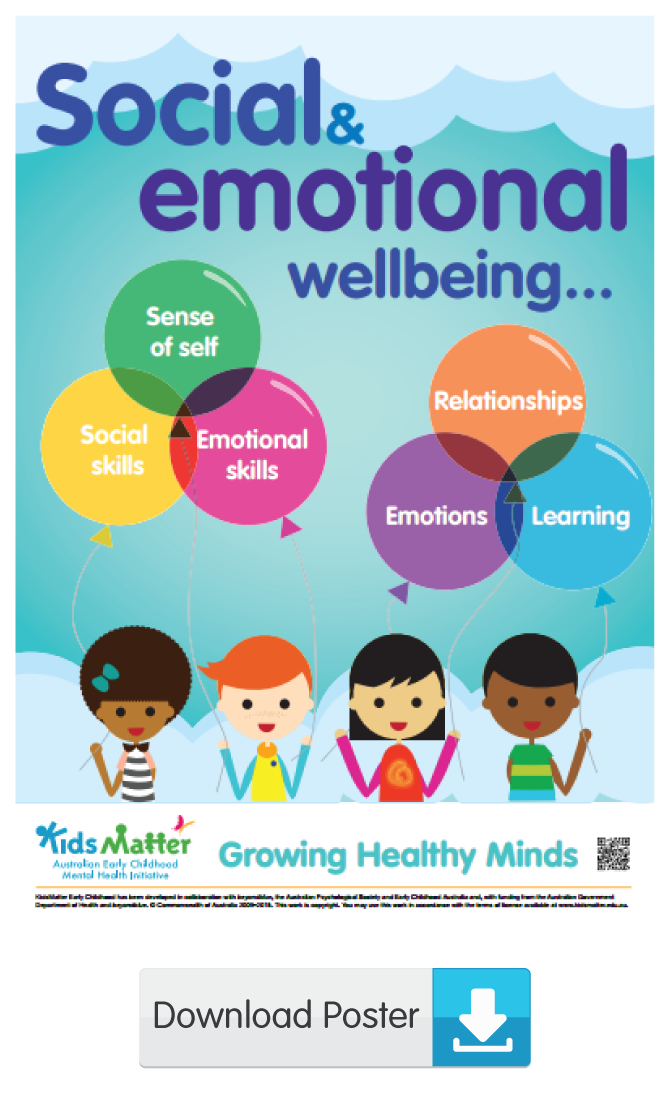 By limiting a child's contacts, we inhibit the development of his social skills. Growing up, he goes out into the world, not understanding how to live in it and how to interact with people who live in this world. There is a rule in aikido training: each athlete must work out the same technique with the maximum number of sparring partners, because with each of them it will be a little different - the athlete learns to see the strengths and feel for the weaknesses of the opponent, adapt to his height , weight, speed, and at the same time find their advantages. That is why the child must communicate with people of different ages, different material wealth and cultural levels. He must practice his social skills.
By limiting a child's contacts, we inhibit the development of his social skills. Growing up, he goes out into the world, not understanding how to live in it and how to interact with people who live in this world. There is a rule in aikido training: each athlete must work out the same technique with the maximum number of sparring partners, because with each of them it will be a little different - the athlete learns to see the strengths and feel for the weaknesses of the opponent, adapt to his height , weight, speed, and at the same time find their advantages. That is why the child must communicate with people of different ages, different material wealth and cultural levels. He must practice his social skills. - Give experience of various social situations. Relationships with people are always a risk. We are all different, someone likes you, and someone annoys and repels you. Someone can treat you kindly, and someone can intrigue. For full development, children need unplanned, unexpected, sometimes even conflict situations.
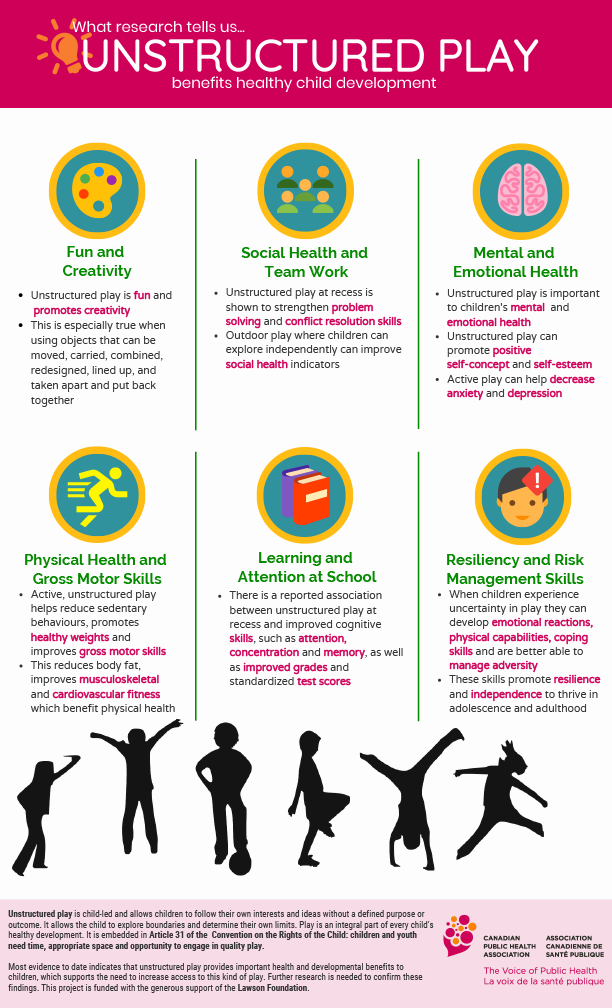 The experience of getting into and out of such situations helps to develop social immunity. The child got into a fight - let's not rush to figure out who is right and who is wrong. It’s better to ask him what happened, and together we will discuss how it was possible to resolve the conflict peacefully and how to behave in the future.
The experience of getting into and out of such situations helps to develop social immunity. The child got into a fight - let's not rush to figure out who is right and who is wrong. It’s better to ask him what happened, and together we will discuss how it was possible to resolve the conflict peacefully and how to behave in the future. - Use social equipment. Even if a child is driven in a car with a personal driver, it is useful for him to take a ride on the subway or tram from time to time. Traveling by public transport is an ideal option for practicing social skills. Despite the apparent simplicity, even the ability to correctly find a place in the cabin is developed gradually. Which one is considered good? The place where we do not interfere with others and no one interferes with us, from where you can clearly see what is happening around. The task of “squeezing between people” is solved much easier if you turn to your neighbors with the words: “Are you not going out now? Please let me pass!” The child learns from experience that words are much more effective than brute force.
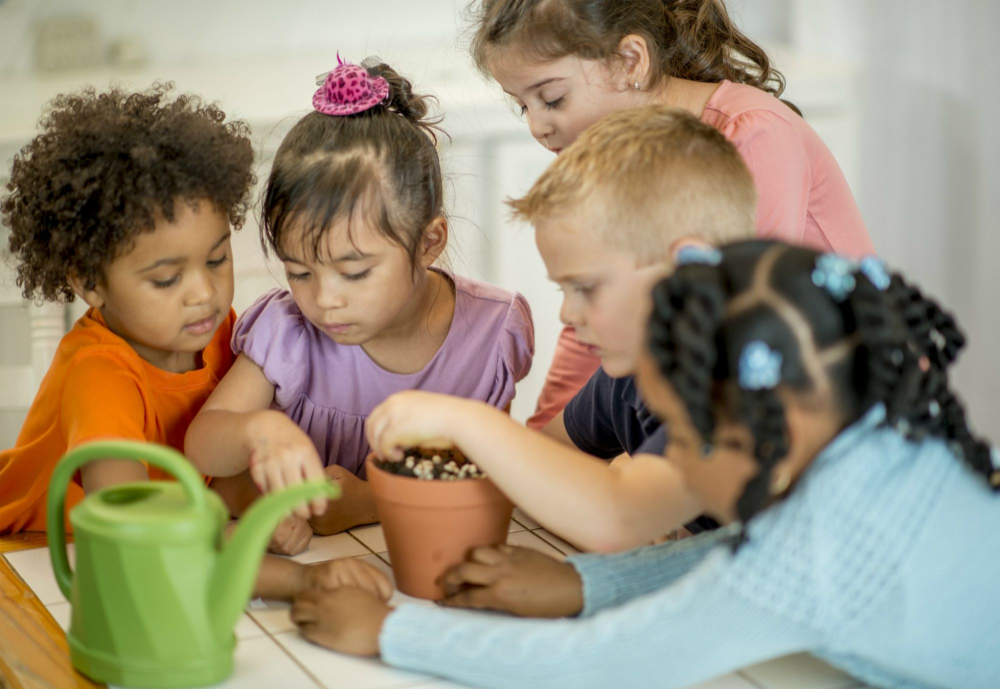
- Learn to respect boundaries in communication. For successful social interaction, it is very important for a child to learn to understand the boundaries of the personal space of other people and try not to violate them. This is especially true for the boundaries of strangers - in public places, on the street, in a restaurant, on an airplane, on a train. For example, a child rushes screaming around the restaurant from table to table - you need to stop him and say that he is bothering everyone. And if he does not understand, punishment should follow. Demanding compliance with external boundaries, we thereby give impetus to the formation of internal self-control, that is, the ability to monitor ourselves, cope with our impulses, emotional outbursts.
- Learn to understand your feelings and the feelings of other people. Life sets tasks for the child, for the fulfillment of which it is necessary to achieve something from people with different views, values and characters.
 To successfully cope with these tasks, it is necessary to be able to understand and anticipate the behavior of other people, evaluate their motivation, intentions and determine who can be trusted and who cannot. But often we ourselves do not know what we feel - resentment or anger, annoyance with ourselves or envy of another, joy or satisfaction. The ability to recognize your feelings is a very useful skill. Only by learning to understand our feelings can we learn to empathize, that is, to understand the feelings of other people.
To successfully cope with these tasks, it is necessary to be able to understand and anticipate the behavior of other people, evaluate their motivation, intentions and determine who can be trusted and who cannot. But often we ourselves do not know what we feel - resentment or anger, annoyance with ourselves or envy of another, joy or satisfaction. The ability to recognize your feelings is a very useful skill. Only by learning to understand our feelings can we learn to empathize, that is, to understand the feelings of other people. - Teach the child to respond adequately in various communication situations. In the big world, the child will have to solve his own problems, win a place under the sun, determine who is a friend and who is not. Somewhere you have to step aside, somewhere you need to agree and compromise, somewhere you need to actively insist on your own and directly express your opinion. To do this, the child's arsenal should have many ways to respond and cope with different situations.
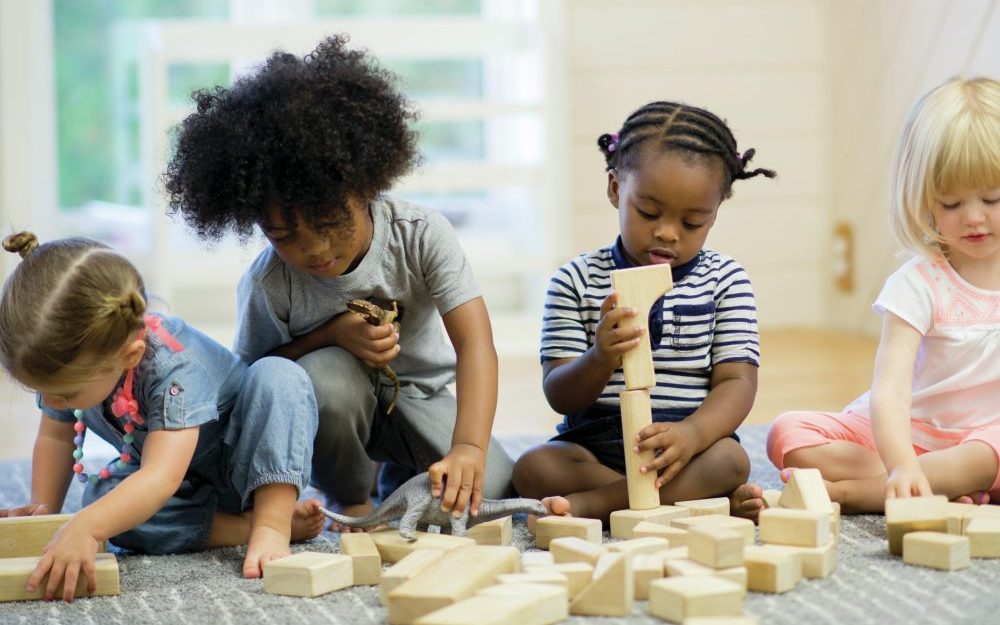
Learn more


